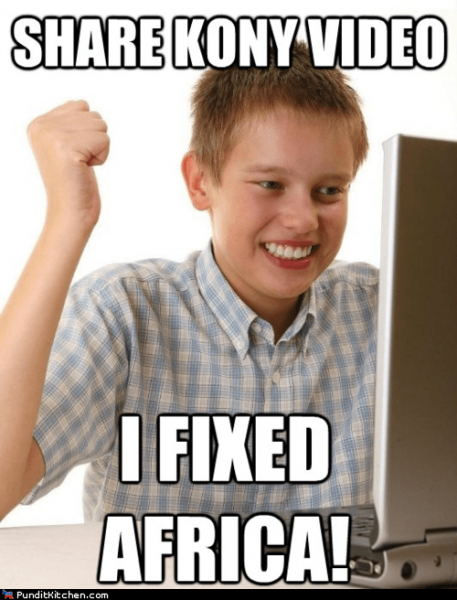In many places in Europe, there’s talk about introducting 2G measures against Covid. At least, 2G is the Dutch name (short for genezen (recovered), gevaccineerd (vaccinated), as opposed to 3G, genezen, gevaccineerd, getest; 75% of all Dutch words begin with ge-, so we can make neat abbreviations like that). The crux of these measures is that one set of rules are in place for vaccinated people and another for non-vaccinated people, in part to reduce infection but to at least an equally large degree to encourage getting vaccinated. Austria introduced this recently to improve their low vaccination numbers, and the Dutch government are talking about introducing the same. Of course, this is getting the anti-vaxxers all riled up in the comment section on the news media, complaining about how this is the same as forced vaccination.
I of course find that hilarious; the anti-vaxxers has been harping on about freedom of choice as the reason for not getting vaccinated. The earlier reason (untested vaccine) is getting more and more hollow as the vaccinated count is in the hundreds of million people. I’m very surprised that the anti-vaxxers are not embracing the 2G measures, because that is the epitome of freedom of choice: people have the choice of not getting vaccinated but of course will have to pay the price for it. If they could just not get vaccinated but still put others in danger by getting treated the same there would be no cost to not getting vaccinated (aside from not killing others, but that is apparently not sufficient motivation for them), and hence no choice. Now there’s a genuine choice: do you want to be able to participate in society or do you want to not get vaccinated.
It surely can’t be that they just wanted to act as petulant babies and used freedom of choice as an excuse because “I’m a big baby and nobody tell me what to do” doesn’t sound so convincing during an interview? Much like “freedom of speech” has become the go-to excuse for “racism,” “mah school shootings” have become an excuse for “I’m afraid of guns, so nobody should have them” or “racism” has become the excuse for “revolting and burning stuff is fun.” See, I can be an ass to bad arguments on both extremes of the political spectrum.

Now, it will be fun to see whether anti-vaxxers will really stand by their freedom of choice or actually get vaccinated when refraining from doing so will have more consequences. The smart money is on all but the most extreme anti-vaxxers getting vaccinated now. Much like how all but the most extreme activists (on either side) will keep their activism to angrily sharing pictures on Facebook or angrily posting a badly spelled stupid opinion on news articles.
And, frankly, that’s a good thing. Opinions shift like that. First, a few progressive/early adopters (progressive here used in the real meaning, not the stupid modern politicized US meaning) push a new agenda, more people join and at a point the new status quo reaches critical mass and the majority of people change their minds, leaving only few clinging to antiquated opinions. This has been seen with gay acceptance: in the 70s only very few publicly admitted to being gay, in the 90s more joined, and in the early 2000s gay acceptance reached critical mass in Europe and a decade later in the US. There are still hold-outs, but coming out as gay is no longer brave or a big deal (except to the person coming out, I guess), to the point where it almost seems like a fashion statement to come out as bisexual for famous people. Women’s rights did the same half a century earlier. That doesn’t mean there are no problems, but that the majority has flipped and now it’s only a few holding back.
It’s the same with vaccines too; despite warnings from social scientists, it went to become a politicized topic. I can understand that face masks became politicized: a facemask is essentially a bumper-sticker for your face stating your point of view. It doesn’t help that facemasks were introduced with unclear recommendations (first to ensure that the healthcare sector would not run out and then because of new information becoming available that facemasks did help reduce spread despite initial information, and finally because of muddy communication not making clear that the main reason for wearing a mask is to protect others). It also didn’t help that religious headgear had been presented almost universally as repressive or that masks have a close connection to rioters. Polarized political climate in the US lead to vaccines becoming the next step instead of the stupidity stopping at face masks. When vaccines became a political statement, picking one side was no longer just a matter of protecting yourself or others vs the uncertainty of the vaccines in the beginning, but became a choice of side: are you an anti-vaxxer or a sheep? The choice would have consequences way beyond a sore spot for a day or two and could, at least in the mind of the individual, mean getting rejected in one’s society or family.
Vaccines are over the critical mass: the majority is vaccinated (I’m not sure there ever really was first adopters except for the ones in the pilot studies), and only the last hold-outs are not. Forcing them will definitely help; it will provide a way to explain getting vaccinated without losing too much face in the society: “I have to get vaccinated, or I cannot do X” is an easy cop-out outwards for people who would like to get vaccinated but cannot due to (local) social pressure. It will also make others more hard-lining against vaccinations, but that is really less of a problem. At some point, pressure will become for vaccination, even in traditionally anti-vax groups, and a few people never getting vaccinated is not a big issue: they will be excluded from society for a bit and then we’ll reach herd immunity and it won’t matter whether they are vaccinated or not.
Curiously, this discussion has happened before. The HPV vaccine is rejected by many even though it can lead to cancer. The reason cited is that it is given to children around age 10 and HPV is a sexually transmitted disease, so parents are uncomfortable with it (it is not necessary, my child doesn’t have sex yet, it is unsafe and there is no immediate risk), but that reasoning is 100% false. Because, uptake for Hepatitis B is much higher, even though that too is a sexually transmitted disease. The difference is that the HPV vaccine became politicized while Hepatitis B remained a medical issue where parents were informed by their doctors instead of a shrieking Cheetos.
This politicization is a darn shame, because there are real and important reasons to be skeptical towards the Covid vaccines. I’m not talking about them not being safe or not working, I am talking about concerns such as the fact that the Covid vaccines are “leaky.” That means that they protected the vaccinated, but does not prevent spread. They do reduce spread, but there has been a dearth of information about how well they do so (I’m in a study to investigate that). A leaky vaccine can be very dangerous: it can allow the disease to continue spreading, which cause the virus to keep mutating, potentially turning more dangerous. This is not just a theoretical concern either; this has happened to chicken. All chickens in the world need to get a vaccine to not die from Marek’s disease due to the only treatment known being a leaky vaccine. While the pharmaceutical companies would love to provide the current vaccines on a yearly (or semi-yearly or bi-annual) schedule, it is not great if the entire world need a periodical medical treatment just to not die. The current vaccines absolutely work and should be used here and now, but it is also critical that companies now benefitting are made to improve the vaccine to where many other vaccines are (either a couple of shots protects you for life, like Hepatitis C, chickenpox, mumps, measles, etc, or one shot every 10 years after exceptional exposure, like for tetanus).
But instead we got this politicized mess where getting vaccinated or not is a political stand-point and about freedom of choice. Hopefully, 2G can help with that, even though the Dutch government seems afraid to actually pull thru (making it up to the individual shop-owner whether to use 2G or 3G, making it much less effective because it really should not be their responsibility to anger customers).
